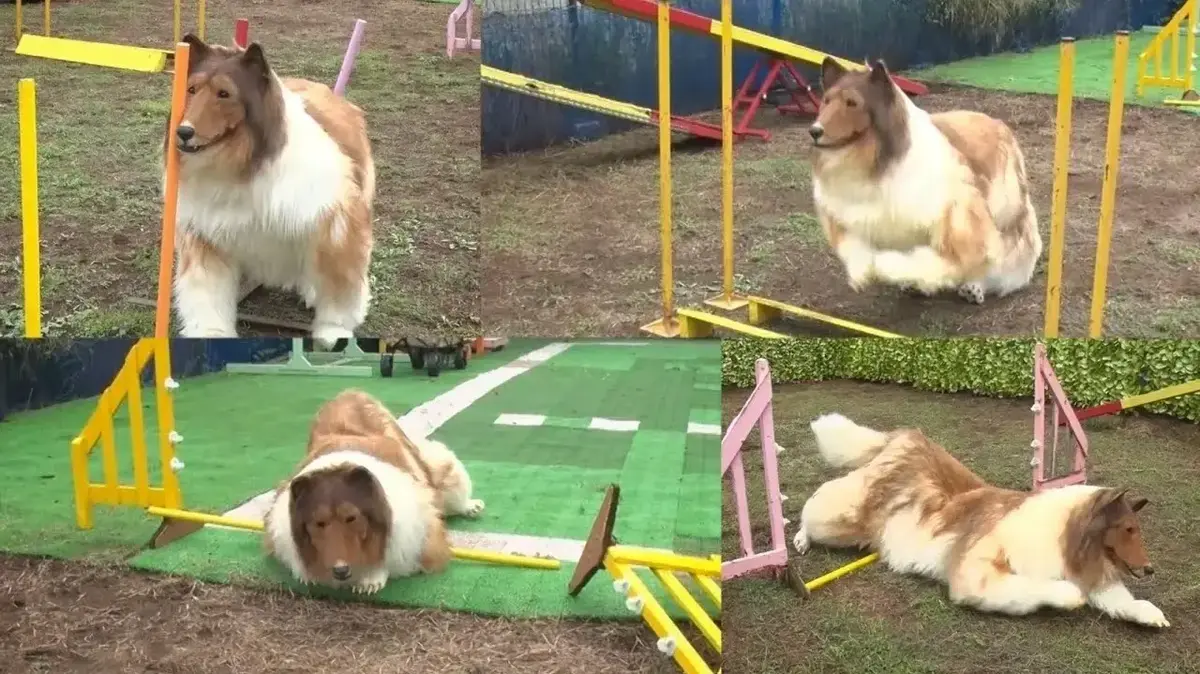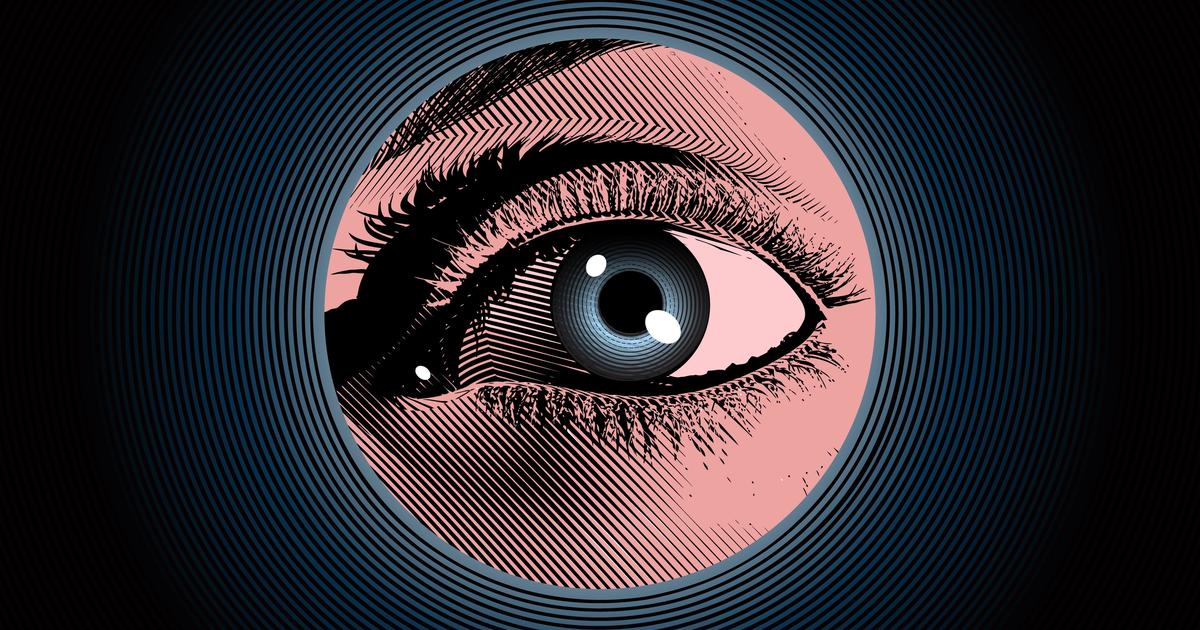Icon: enlarge
Katharina Koch-Hartke lives in Lapland and trains sled dogs there
Photo: 8SeasonsHuskies
“The way to the mailbox felt like I was going to a funeral.
We had seven long weeks behind us, during which my partner Johanna and I and consultants had gone through all possible scenarios of how our small tourism company could be saved.
Vain.
With this letter we ended twelve years of hard work in Sweden.
We filed for bankruptcy.
We invested all of our savings in our company the previous year and took out a loan.
For years we had grown slowly and offered more and more group tours in Lapland.
We really wanted to get started in 2020.
We had leased a guest house, set up a barbecue hut, bought canoes, snowshoes and sledges for tours with our guests.
Our calendar was full, we even wanted to hire two employees.
But then all bookings broke within a week - and our income shrank to zero.
The food for a sled dog alone costs 75 euros per month.
With 30 dogs that makes 2250 euros, plus the rent for the guest house and the loan installments - it quickly became clear: We won't get that, even if we get temporary jobs.
There is state corona aid for entrepreneurs in Sweden, but it could not have saved us.
Our last online meeting with a consultant lasted six hours.
After that it was clear: our small company only remains bankrupt.
Our neighbors were worried that we were moving back to Germany.
Fortunately, this is not the case.
Our house and the 30 sled dogs do not belong to the company - and therefore not part of the bankruptcy estate.
Our home is and will remain here, in Överkalix, a 16-inhabitant village almost ten kilometers below the Arctic Circle.
And I haven't given up on my big goal of participating in the 1200 kilometer sled dog race Finnmarkslöpet either.
But we are out of the tourism business now.
Even if the corona crisis is overcome at some point and travel is possible again, we can no longer offer tours: We no longer have a guest house, no equipment, and the necessary insurance is missing.
With the sauna, the bathroom is gone too
All of our things were auctioned off in an online auction organized by the insolvency administrator: the barbecue hut, the storage shed and a snowmobile, canoes, dog sleds, tents, sleeping bags, bicycles, gas stoves, even our sauna.
That was especially tough for us because we used it as a bathroom.
A lot of people in northern Sweden do that.
The sauna heater heats a water tank, the water in it becomes boiling hot and is then mixed with cold water up to the desired temperature.
Then you tip it over with a trowel.
I think that's nicer than taking a shower!
Before the auction, a photographer came by to take pictures of every item, and we also had to offer a public viewing.
Actually, I'm a very hospitable person, but the fact that strangers suddenly run across the courtyard to inspect and pick up my things has got me down.
My family gave us money so that we could bid back at least what we needed from the bankruptcy estate.
Anyone could take part in the auction, so as private individuals we could also submit bids.
Unfortunately, the interest in our things was surprisingly high.
The insolvency administrator was of course pleased.
In the end, we were awarded about 40 percent of our “must-have” list and bought a chainsaw, two headlamps, a training sled for the dogs and a high-pressure cleaner to keep the kennels clean from our former company property.
Our sauna now belongs to someone else.
When the new owners came in a truck to take them away, I left.
I couldn't see it.
The dogs are the center of our life.
The idea of having to sell them just because we can't raise the money for the feed breaks my heart.
I wrote that in a cry for help on our website.
I designed t-shirts and sweatshirts in order to earn a few euros from selling them - and the response from neighbors, former guests, but also complete strangers was enormous.
According to a report in the Swedish local newspaper, one woman simply donated 500 euros to us, another sent a whole pallet of dog food.
And we even received donations from Germany to buy a new sauna.
In the meantime, each of our dogs and even our cat has at least one sponsor who supports us financially.
I would never have expected that, it's really moving.
Asking for help has been difficult and still feels strange to me.
Johanna and I always solved our problems on our own, and we both started in Sweden with no start-up capital.
Cold down to minus 46 degrees Celsius in winter
We got to know each other in 2007 while working on a husky farm in northern Sweden, where we worked in the kitchen.
I am a trained dental assistant and had the prospect of studying dentistry.
Before starting my studies, I wanted to experience another adventure.
I had no experience with huskies, but I was attracted by the prospect of working in the wilderness and experiencing a real winter.
I was enthusiastic about Lapland from the first moment.
How extreme the seasons are here still fascinates me.
From the end of May to mid-August it is light 24 hours a day, from November to January only four hours.
The coldest thing I've ever seen here was minus 46 degrees Celsius, but in August we measured 28 degrees.
No matter whether in summer or winter: I love to be outside all day.
My first dog sled ride, however, was not very romantic.
Two guests had fallen in their sledges a few hundred meters behind the start and had done what a musher, so hot dog sled driver, is never allowed to do: they let go of the teams.
The dogs raced on, straight towards the main street.
The tour guide chased them after them with the snowmobile, everyone was excited and suddenly we, the kitchen helpers, were supposed to drive the remaining dog teams of the other guests back into the courtyard.
It worked - but only because the dogs knew what to do.
"We want to earn money for the dogs, not with them"
The husky fever didn't catch me until the second winter.
I skipped my university place in order to continue living in Sweden with Johanna.
We lived in a ten square meter trailer in the parking lot of the husky farm.
She is huge;
around 100 sled dogs belong to it, there are regularly puppies.
And then there was this one who wasn't properly cared for by his mother and who also seemed otherwise disoriented.
Johanna took pity on the little one: Luna, our first husky.
Although it was clear that we would stay in Lapland, so much was still uncertain at the time.
But well, I thought - if Luna moves in with us, we can have a second puppy.
Icon: enlarge
At first glance, Alaskan Huskies don't look like typical sled dogs.
Bred to run extremely long distances, they were created by crossing Siberian huskies with other hunting and sled dogs.
Photo: 8SeasonsHuskies
Whenever there was time, we went on excursions with the two dogs, and in winter we let them pull us in a sledge.
During the summer we worked in hotels to improve our Swedish, then I began training to be a wilderness guide and interned with a musher who also drives dog sled races.
Then I knew: I want that too!
We got more huskies and later integrated them into our tour program after we had founded our own travel company.
But one thing has always been important to us: We earn money for the dogs and not with them.
Preparing for a dog sled race costs up to 40,000 euros
I stopped my first race after 200 kilometers, two thirds of the way.
I borrowed two strange huskies so that I could start with eight dogs.
The two weren't trained as well as mine, the team structure wasn't ideal.
We started full of energy, but then it got tough for the dogs.
You haven't eaten properly and seemed tired to me.
And before I endanger the animals, I prefer to stop.
I only enjoy racing as long as it is a good experience for the dogs.
Alaskan Huskies are bred for long distance, they want to run and pull, so you don't have to push them.
Only after 70 kilometers do they really get into the rhythm.
But until you are really well-rehearsed with a team you have to train for a long time.
A race like the Finnmarkslöpet takes several years to prepare.
If you add up the cost of feed and equipment, you can easily get to 30,000 to 40,000 euros.
And the entry fee alone is 1200 euros.
I actually wanted to start in March 2022.
Now I don't even know if I'll still have the money for dog food in six months.
But I do not give up.
Johanna and I are survivors.
I have now completed further training as a forest worker, and I've already had my first jobs with a chainsaw.
That way I can earn money and still have enough time to train with the dogs. "
Icon: The mirror














